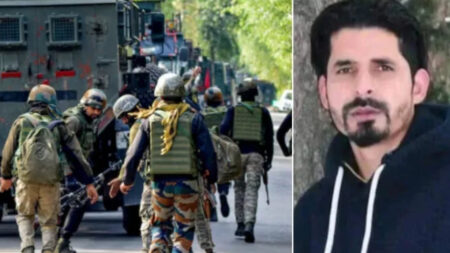It has been two years since the parliament passed the Citizen Amendment Act. On December 6th of 2019, parliament passed the Citizen Amendment Act with the majority, and on the very next day, December 12th 2019, received the presidential nod. Yet the law is to be implemented as the CAA rules are still not framed. On Monday, the Ministry of Home Affairs sought Parliamentary Committees and requested them to give more time for crafting the rules.
- The Ministry of Home Affairs seeks Parliamentary Committees.
- Sixth extension for framing CAA rules.
- HC asks to apply for CAA to East Pakistani Immigrant.
Earlier this week, as Monday 10-01-2022 fifth extension came to an end. The Ministry of Home Affairs contacts Parliamentary panels for requesting a sixth extension for framing the Citizen Amendment Act rules. Since the act was passed in December 2019, this sought to be the sixth extension.
According to the MHA, the Modi government wants to accept Indian Nationality to Non-Muslim migrants from Pakistan, Bangladesh and Afghanistan. Hence, they need more time to work out CAA rules.
As stated in Manual of Parliamentary Work, “If the Departments/ Ministries are not able to frame rules within prescribed period of six months after an act is passed, then ‘they should seek an extension of time from the committee on Subordinate Legislation stating the reason for such extension’ which cannot be more than three months at a time”. Although, the last extension was granted for six months.
Considering that MHA could not frame rules within the first six months of the enactment of CAA, that is, June 2020, it sought extension four more times and sought Parliamentary Committee.
One of the Home Ministry officials made an official statement that “We have approached the parliamentary committees seeking more time. Hopefully, we will get the extension”.
The Bhartiya Janta Party’s manifesto said, “To offer Indian citizenship to members of persecuted religious minorities who had migrated from neighbouring countries”.
CAA will provide India gave citizenship to six undocumented non- Muslim communities who entered India on or before December 31st of 2014, based on religion from Afghanistan, Bangladesh, and Pakistan.
The goal of the Citizen Amendment Act is to grant citizenship to tortured and mistreated minorities like Sikhs, Buddhists, Jains, Parsis, Christian and Hindus from our neighbouring countries, Afghanistan, Pakistan and Bangladesh. At the same time, it excludes those who entered after December 31st 2014 and the members of six communities from any criminal cases under The Foreigners Act, 1946.
Even though the CAA’s moto was good after the act passed in parliament, India witnessed widespread protest from various parts of the country. Nearly hundreds of people died in the violence, and police firing occurred. Accordingly, after the CAA protests happened, we cannot blame voters for the forthcoming dissatisfaction against the government, particularly Home Minister Amit Shah. Presently, today’s government is too constrained by the day’s politics.
On the other side, the Gauhati High Court directed a Hindu man from Pakistan to apply for citizenship by taking benefits of the CAA. The order came from Foreigner’s Tribunal, by the bench of Justice Malasri Nandi and Justice N. Kotiswar Singh. The plea made by Bablu Paul, who moved to the Court challenging the order of 2017, driven by Foreigner’s Tribunal of declaring him “A Foreigner”.
According to facts produced by the petitioner, the petitioner’s grandfather was an Indian Citizen who had been casting a vote since 1966. The petitioner also wants to be treated as an Indian. The Court heard the plea and defence both with non-biased mode and decided in favour of the petitioner.












